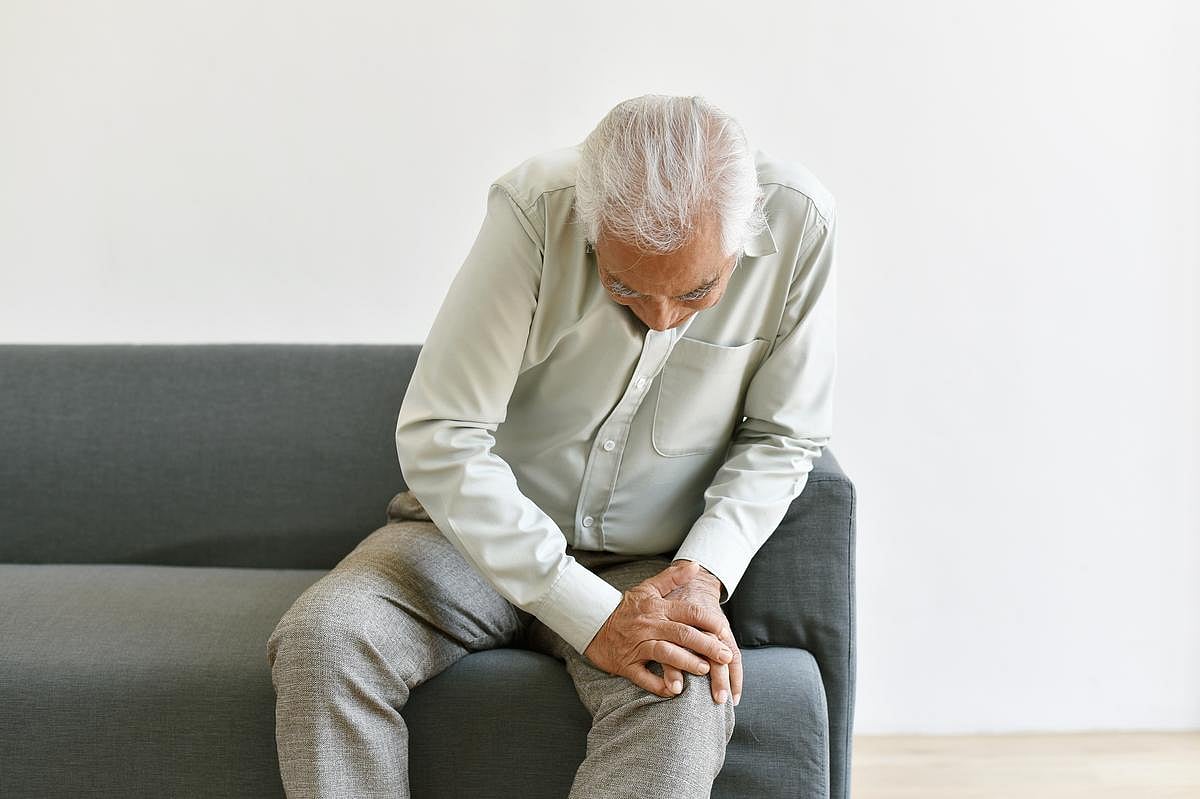Patient Resources
Get Healthy!
Chronic Joint Pain Plus Depression Can Take Toll on the Brain
- November 21, 2024
- Ernie Mundell
- HealthDay Reporter

Having achy, painful joints isn't just a physical woe: Coupled with depression, it could also degrade an older person's brain function over time.
That's the conclusion of a study of almost 5,000 older Britons tracked for 12 years. People who had both chronic joint pain and depression tended to perform worse on cognitive tests, especially tests focused on memory skills.
“Both pain and symptoms of depression act on areas of the brain [mainly the hippocampus] associated with cognitive processing," explained Brazilian gerontology researcher and study lead author Patrícia Silva Tofani, of the Federal University of Sergipe.
She has a theory as to how joint pain and depression might pose a double whammy to brain health.
"There’s an overlap of information, causing the brain to become ‘congested’ and have to delegate some functions to process the pain response and the symptoms of depression," she said in a university news release. "This would interfere with formation of memory and global cognitive performance. In the study, we saw that over the years, this overload leads to faster cognitive decline.”
The findings were published recently in the journal Aging & Mental Health.
The study was based on data from the English Longitudinal Study of Aging, and looked at data on 4,718 Britons aged 50 or older whose health was tracked for a dozen years. Among other things, they were queried as to their levels of any kind of joint pain (for example, of the knee or hip), and any level of depression.
Tofani's group also tracked levels of cognition and memory decline over the study period. They looked at six cognitive "domains': executive function (making decisions and planning and carrying out actions), language, attention, memory, perceptomotor (movement in response to sensory stimuli), and social cognition (the ability to understand one’s own emotions and those of other people, and to interpret the behavior of others).
Her team found that people who had a combination of chronic joint pain and depression showed significantly faster decline in memory and global cognition compared to people who only had joint pain or were only depressed.
"We didn’t expect that only the first group [pain + depression] would show faster memory impairment," added study co-author Tiago da Silva Alexandre, a professor of gerontology at the university. "Following the evolution of this issue for 12 years has allowed us to see that the problem lies in the combination of the two conditions."
Interestingly, folks with joint pain plus depression exhibited no faster decline in their executive function, according to the study.
“This is important, because memory and executive function are the two most important domains for autonomy, in other words, for older people to live alone, for example,” Tofani noted.
The findings highlight that treating both arthritis and depression -- two conditions common among the elderly -- may be crucial to keeping them independent and cognitively healthy.
“It’s relatively common for people to mistakenly attribute symptoms of depression and pain as normal factors of aging. And they’re not," said Alexandre. "This belief leads professionals who are not specialists in gerontology and geriatrics to minimize the complaints of older people in primary care and to fail to diagnose and treat modifiable conditions. But in our study, we showed that when this is not valued in the consultation, it not only damages mood and mobility [in the case of pain], but also the individual’s cognitive issues."
More information
Find out more about treatments for arthritis pain at the Arthritis Foundation.
SOURCE: Fundação de Amparo à Pesquisa do Estado de São Paulo, news release, Nov. 13, 2024

